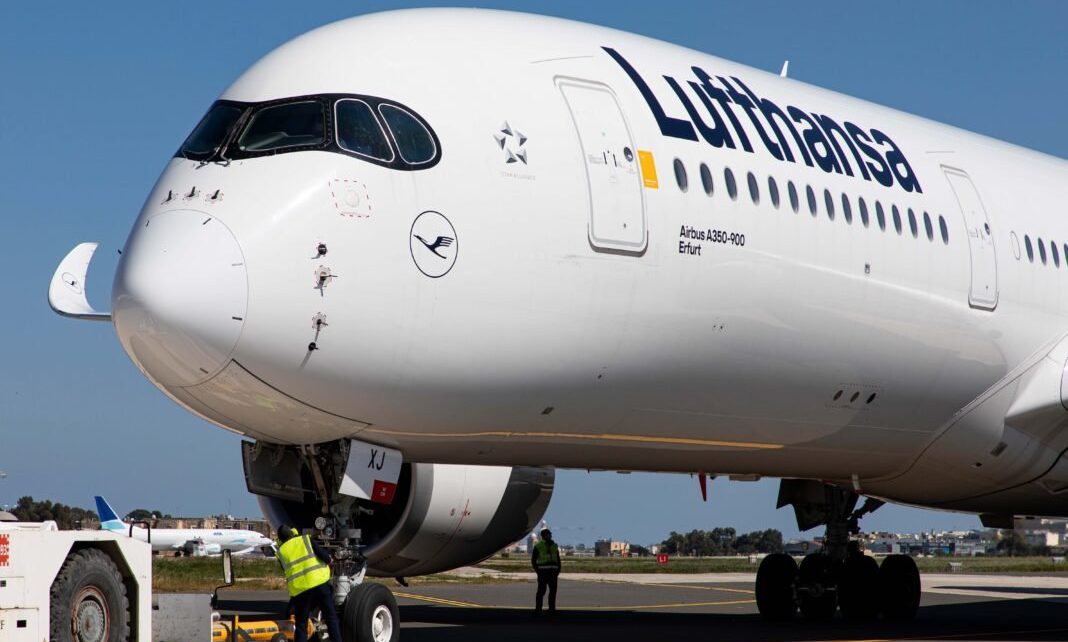The Lufthansa Group’s most fuel-efficient long-haul aircraft becomes a data collector above the clouds
- Converting an aircraft into a climate research plane poses major challenges
- In three stages, the “Erfurt” will now become a flying research laboratory
- The “Erfurt” is expected to take off from Munich at the end of 2021 for its first flight in the service of climate research
Predicting the weather even more accurately, analyzing climate changes even more precisely, researching even better how the world is developing. This is the goal of a globally unique cooperation between Lufthansa and several research institutes.
Converting an aircraft into a climate research plane poses major challenges. Lufthansa has chosen the most modern and economical long-haul jet in its fleet – an Airbus A350-900 named “Erfurt” (registration D-AIXJ). In three stages, the “Erfurt” will now become a flying research laboratory.
In Lufthansa Technik’s hangar in Malta, the first and most extensive conversion work was carried out. Preparations were made for a complex air intake system below the belly. This was followed by a series of test insertions, at the end of which came the certification of a climate research laboratory weighing around 1.6 tons, the so-called CARIBIC measurement laboratory. The acronym CARIBIC stands for “Civil Aircraft for the Regular Investigation of the atmosphere Based on an Instrument Container”. The project is part of a comprehensive European research consortium.
The “Erfurt” is expected to take off from Munich at the end of 2021 for its first flight in the service of climate research, measuring around 100 different trace gases, aerosol and cloud parameters in the tropopause region (at an altitude of nine to twelve kilometers). Lufthansa is thus making a valuable contribution to climate research, which can use these unique data to assess the performance of current atmospheric and climate models and thus their predictive power for the Earth’s future climate. The special feature: Climate-relevant parameters can be recorded at this altitude with much greater accuracy and temporal resolution on board the aircraft than with satellite-based or ground-based systems.
“The conversion of our A350-900 ‘D-AIXJ’ into a climate research aircraft is something very special for us. We were immediately enthusiastic about the plan to continue CARIBIC on our most fuel-efficient aircraft type. In this way, we can continue to support climate and atmospheric research in its important task on long-haul routes. We are helping to ensure that particularly important climate-relevant parameters are collected just on that altitude where the atmospheric greenhouse effects is largely generated”, says Annette Mann, Head of Corporate Responsibility at the Lufthansa Group. “I am pleased that we can implement this ambitious project together with our partners in record time and thus contribute to improving today’s climate models.”




